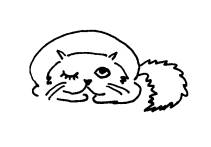



One important lesson to be learned from Schrödinger's argument is that one should avoid the temptation to identify quantum states with the properties attached to a physical systems (see also the section on uncertainty). From a technical point of view, quantum states are just vectors that can be used to draw predictions about measurement results obtained in a given experimental context. Hence, in particular, one should not feel disturbed if, in the case of two entangled systems, it turns out to be impossible to assign an individual state to each partner of the pair.
A second important point is that entanglement provides the key tool to understand how a 'classical world' can 'emerge' within the framework of quantum mechanics. By 'classical world' we mean the network of empirical regularities constituting our 'macroscopic experience' - a network that fits neatly a conceptual frame assuming the existence of separated objects endowed with properties. Such frame proves in general unsuitable to account for quantum phenomena (see wave-particle duality). Nevertheless, as shown in the section about origins, due to the bad isolation of macroscopic systems, quantum mechanics and our common conception of cats can coexist without contradiction.
Apart from fundamental implications, the perspectives opened by the controlled entanglement of atomic and 'mesoscopic' systems appear very promising. For intance, dramatic improvements can be expected in computer science. In principle, the quantum schemes to process information are much more performing than those used by usual computers. Indeed, classical bits can only switch between two individual states and they work 'in series', whereas quantum bits can be 'superimposed' in huge global entangled states and thus work 'in parallel'. Quantum computers are however very exposed to parasitic effects due to their entanglement with the environment. In order to work, they require a perfect isolation that current technology cannot achieve.
More generally, the capability to manipulate the quantum state of a 'quasi-classical' system, like a biological molecule, may lead to new unexpected applications.